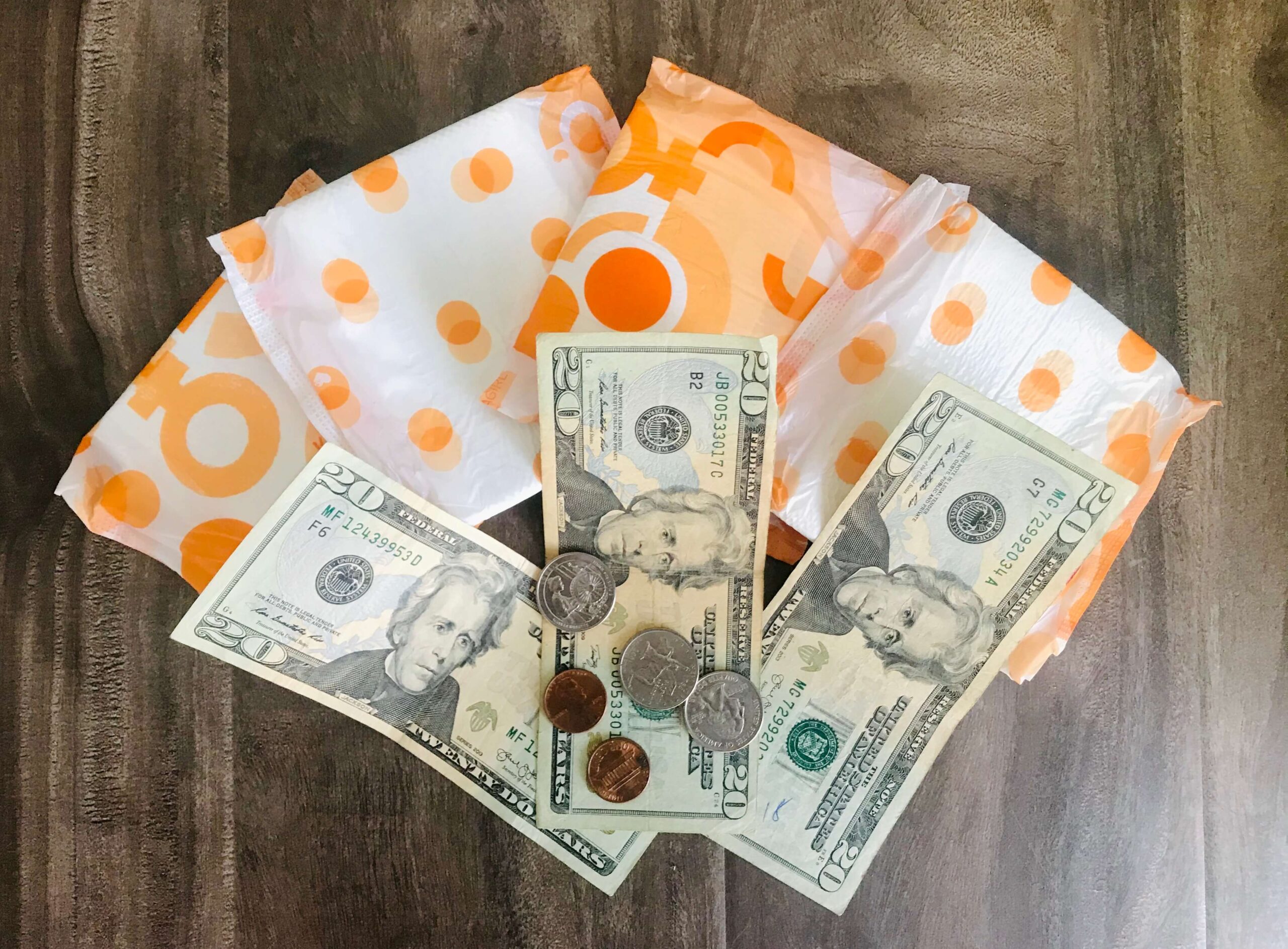“As women I know it’s hard to deal with the world and men because we’re perceived as different,” said New York University sophomore Jhenelle Marson, reading aloud her letter to a homeless woman. Next to her, 20 other members of the NYU club WEST –Women of Excellence, Strength and Tenacity– were also handwriting letters to the homeless, while singing to Ariana Grande’s “thank u, next.”
The personalized letters were included with the club’s donation of 1,000 menstrual hygiene products to a non-profit that collects and distributes pads and tampons to homeless shelters in the United States and abroad.
In 2017, almost 400 million sanitary napkins were sold in the United States with an average price per unit of $4.34 and around 180 million tampons with an average price of $5.92. Considering that a woman menstruates on average 2,535 days in their lifetime, the cost of sanitary products can exceed hundreds of dollars, a luxury that many poor and homeless people can’t afford.
As a result, women advocacy groups are hosting drives and meeting with government officials as part of the growing menstrual movement to destigmatize periods and achieve menstrual equity – the equal access to menstrual hygiene products for everyone.
Despite New York State’s legislation exempting menstrual hygiene products from taxes and an NYC law to distribute them for free at public schools, shelters and prisons, homeless women still struggle to get them. “We’re so encouraged to give free condoms, but what about pads and tampons?” said Marson.
NYU WEST decided to host the menstrual hygiene products drive after one of the members had a first-hand encounter with menstrual inequity. “I was recently in CVS and I saw a homeless woman stealing pads,” said Britney Agyen, an NYU sophomore student and Community Service Outreach for WEST. “It was heartbreaking.” With a big cardboard box placed in the Academic Resource Center of NYU and the modest goal of collecting 200 products, the club organized its first month-long menstrual hygiene drive, not a typical donation drives, but needed.
At the club meeting on the evening of Nov. 30, the final count was revealed, and the 20 women cheered at the final tally of 1,190 pink and green packages, ranging from tampons to heavy-flow pads. In the following days, the club shipped the box of products and the handwritten notes to the NGO I Support the Girls.
I Support the Girls started in the house of Dana Marlowe in Maryland in 2015 after she read an article about the pressing need for bras and menstrual hygiene products for homeless people. Now, her organization has more than 50 affiliates around the country and the world that collect and distribute menstrual hygiene products and bras to their local homeless shelters. The work that I Support the Girls does goes beyond just distributing the products. “When donating locally, and organization and time permitting, it’s always a pleasure to interact with the direct recipients of the products as well as organization staff,” said Marlowe in an email interview. Donors often send letters along with their donations so Marlowe’s NGO makes sure that the hundreds of letters get distributed as well.
In addition to donations, female advocates for menstrual equity want changes in the legislation to make a long-lasting difference. The Brooklyn-based women’s advocacy group WHARR –Women’s Health and Reproductive Rights– is meeting with newly elected officials on city and state levels to discuss menstrual equity and other female-related demands. “It’s a basic issue of dignity,” said WHARR co-chair Marta Schaaf at the group’s general meeting on Nov. 27. “There are homeless women that go to school or are trying to get a job and if they are dirty [with menstrual blood stains] you can’t expect them to go like that.” Part of the ongoing problem, Schaaf notes, is that while menstrual products are supposed to be free in New York public schools and shelters by law, this isn’t always the case. “We can’t regulate the prices charged for menstrual products so the best we can do is improving the access for low-income women,” said Schaaf.
As NYU WEST packed their donations to be shipped, Marson finished reading her letter to a homeless woman. “You’re strong and brave, you’re purposeful and your life is worth it,” she said. “Stay you and live.” –From another woman.








